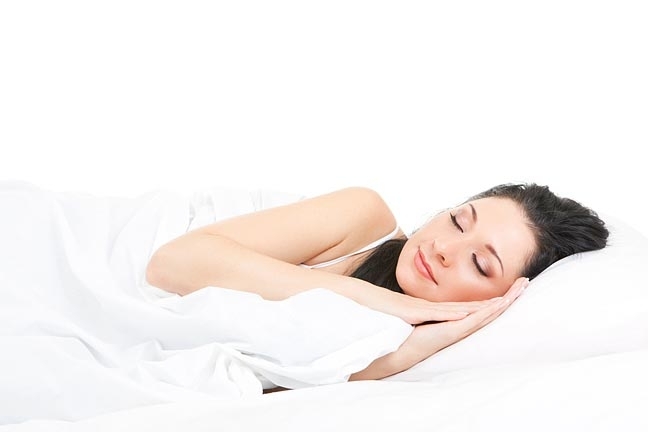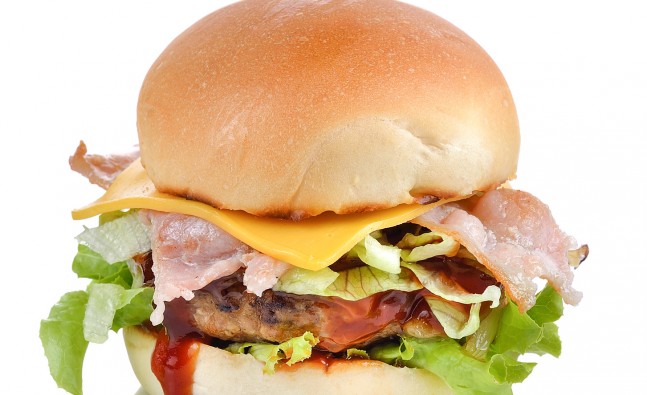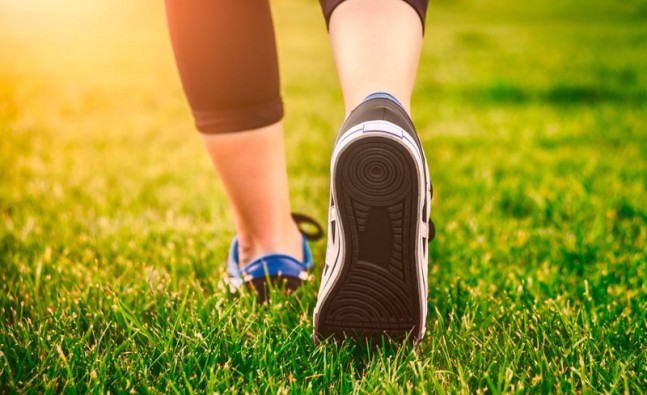Lose Weight While You Sleep

What’s the connection between a lack of shut-eye and a higher number on the scale? Sleep deprivation spikes the hormone ghrelin, which stimulates your appetite. This can cause you to eat up to 300 more calories a day than you would if you got a good night’s sleep, according to Dr. Oz. That adds up to a whopping 30 pounds a year.Case in point: Research published in the American Journal of Clinical Nutrition shows that people who are sleep deprived (sleeping about 5.5 hours per night) take in significantly more calories from snacking throughout the day than those who are well-rested (8.5 hours per night). And they aren’t jonesing for veggies: The sleepy snackers craved carbs and ate fewer proteins and fats, which help you feel full.THE STUDY, EXPLAINED: Lack of Sleep Leads to SnackingTry these tips for making sleep a priority and getting your beauty rest:Aim to up your snooze time. Try wrapping up nighttime tasks, such as emailing friends or straightening up the living room, earlier to give yourself more time to sleep. Need an incentive? If you increase the amount you sleep by one hour a night—say, from 6 to 7 hours a night—you could lose about 14 pounds a year on average, according to Dr. Oz.Remind yourself it’s bedtime. You can’t always control when you wake up (darn that 7:30am alarm!), but you can ensure that you go to a bed at a decent hour and get the good night’s sleep your mind and body need by setting your alarm clock to remind you to go to bed—not just to wake up in the a.m.Depending on what time you have to get up, subtract 7.5 hours from that time and set your alarm accordingly. So if you have to be up by 7:30am, set your alarm for midnight (or better yet, an hour earlier than that so you have time to get ready for bed and wind down) to signal it’s time to hit the sack.VIDEO: Watch the Dr. Oz Show on Sleep & Weight LossTry calming supplements. Try taking calcium and magnesium, which help calm the nervous system, acting as natural sleep aides. Aim to get in 600 milligrams of calcium and 400 milligrams of magnesium.Bring on the dark. The best sleep environment is a dark, quiet and cool (between 60 and 68 degrees Fahrenheit). Be sure you have shades or curtains (or an eye mask) to block out light, which can keep you awake. If you can, remove all light-emitting electronics, such as TVs and computers from your bedroom. Darkness helps stimulate your body’s production of melatonin, a hormone that promotes sleepiness.Adopt a relaxation ritual. Stress can mess with your rest. Banish it and help bring on sleep by practicing soothing relaxation techniques, such as deep breathing, guided imagery, meditation or progressive muscle relaxation exercises. Or try listening to calming music or taking a warm bath or shower before bedtime. When you’re relaxed, your heart rate and respiration slow down, preparing your body to slip into slumber.QUIZ: Take Our Sleep Quiz to See if You’re Getting Enough
-
Kim Kardashian Diet
You probably know at this point that Kim Kardashian has been following
-
6 Ways cut your food bill, eat healthy AND lose weight!
-
The Habit Tons of Slim People Have In Common
Earlier this year, we reported that thinking about the future may
-
Quick tips for WEIGHT LOSS: Tummy rumbles
-
Obese Americans Now Outweigh the Overweight
It looks like we’re losing the war on obesity. According to new resea
-
Fashionable Nutrition Myths: Limited calories will speed up weight loss
- DON'T MISS
- The Most Obese State in the U.S.
- Measure what you eat
- Why This Dietitian Has Banned the Term ‘Guilt-Free’ from Her Food Vocabulary
- Controlling your weight
- Use ad breaks to burn calories
- This Anti-Smoking Drug Might Help You Say No to Sugar
- 3 Refreshing Facts About Weight Loss That Will Make it Seem So Much Less Intimidating
- Do you consider the quality of the vegetables that you eat?
- Healthy ways to indulge in sweet treats
- 4 Reasons Why You’re Always So Damn Hungry




